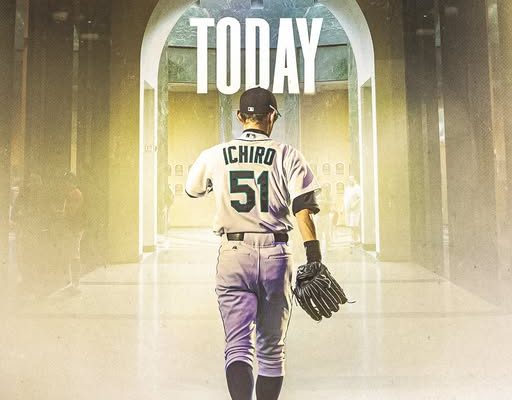When Ichiro Suzuki first stepped onto a Major League Baseball field in 2001, few could have foreseen the historic journey that would follow. Yet on this momentous day, as he is officially enshrined in the National Baseball Hall of Fame, the sport rightfully pauses to honor a man who not only rewrote the record books but also transcended cultural and geographical boundaries to become one of baseball’s most iconic figures. Ichiro’s journey from Kasugai, Japan, to Cooperstown, New York, is not just a story of athletic excellence; it’s a testament to precision, persistence, and profound influence on the global baseball landscape.
Ichiro’s Hall of Fame induction is more than deserved—it feels inevitable. He arrived in the United States with towering expectations after becoming a legend in Nippon Professional Baseball with the Orix BlueWave, where he racked up seven consecutive batting titles. Still, there were skeptics. Could his unorthodox swing translate? Could his slender frame endure the 162-game grind of the American major leagues? Would he struggle with fastballs dialed up in velocity and intensity? Those doubts were vaporized quickly. Ichiro didn’t just succeed; he revolutionized.
In his rookie season with the Seattle Mariners, Ichiro led the league in hits, stole bases at will, and patrolled right field with a cannon for an arm. He didn’t merely win the American League Rookie of the Year—he also claimed the MVP, joining Fred Lynn as the only players to ever earn both in the same season. Ichiro batted .350, stole 56 bases, and compiled 242 hits. And that was just the beginning.
Over the course of his MLB career, Ichiro accumulated 3,089 hits, a total that would be even higher if one included his 1,278 hits in Japan—giving him a combined 4,367, the most of any professional player in history. But Ichiro’s value extended beyond numbers. Every hit, every infield single legged out with a blur of speed, every laser throw from right field to third base, was a display of artistic athleticism. His career was a masterclass in consistency and discipline.
Ichiro played the game with a monk-like devotion. His pregame routines bordered on ritual, his stretching and batting practice methods so precise that teammates marveled at his unwavering discipline. He sharpened his craft with purpose, often stating that baseball was not just something he played, but something he studied, respected, and surrendered to completely. He once famously said, “You don’t play baseball. You practice baseball.” That mindset turned him into a modern-day samurai with a bat.
What made Ichiro unique wasn’t just his mechanics or his speed—it was his flair for drama wrapped in serenity. In clutch moments, he never looked rattled. In blowouts, he still played with laser focus. He collected ten straight 200-hit seasons, breaking George Sisler’s single-season hits record with 262 in 2004. He earned 10 Gold Gloves and made 10 All-Star appearances, often being the most popular player in the game. In the 2007 All-Star Game, he became the first player to hit an inside-the-park home run in the history of the event, winning MVP honors.
And yet, even with all the individual accolades, Ichiro never made the game about himself. He was a team player to the core, driven by humility and pride in craftsmanship. He once said he didn’t chase records but rather sought perfection in execution. That approach made him an ideal ambassador for the game. To Japanese fans, he became a national treasure. To American fans, he became a symbol of excellence. To young players worldwide, he was the blueprint.
Ichiro’s presence helped broaden the reach of Major League Baseball. He inspired a generation of Japanese players to pursue careers in the MLB and showed North American fans the elegance and skill present in the Japanese style of play. He bridged cultural divides, breaking barriers with quiet confidence and respect for the game’s traditions. The wave of international players that now enrich MLB owe a nod of thanks to Ichiro’s pioneering efforts.
Teammates and opponents alike speak of Ichiro in reverent tones. Pitchers dreaded facing him—not because he slugged home runs, but because he could ruin your pitch count with relentless contact. Catchers knew they had to be sharp, for Ichiro would take second base before you knew it. Fielders understood that anything hit his way might come back with the velocity of a laser-guided missile. And for fans, watching Ichiro was watching poetry—every motion had grace, every moment purpose.
His impact in Seattle cannot be overstated. He rejuvenated a franchise and gave Mariners fans a new icon to rally around. He followed in the footsteps of Ken Griffey Jr., but forged his own path—quieter, more meticulous, but just as magnetic. Even during the team’s lean years, Ichiro was a beacon of excellence and a reason to watch. His jersey sales remained among the highest, and his interactions with fans—often respectful bows and subtle smiles—deepened his mystique.
Ichiro later played for the Yankees and Marlins, still dazzling with his ability to find grass, steal bases, and gun down runners. His 3,000th hit came as a pinch-hit triple—a moment that encapsulated his flair for the dramatic and the unusual. He returned to Seattle to finish his career, symbolically closing the loop where it all began. In his final game in 2019, played in Tokyo, Ichiro bid farewell in front of his home country in one of the most emotional and fitting send-offs baseball has ever seen.
Today, in the hallowed halls of Cooperstown, Ichiro Suzuki takes his rightful place alongside baseball’s immortals. His plaque will mention his batting titles, All-Star appearances, Gold Gloves, and record-setting hit totals. But what it cannot fully capture is the spirit he brought to the game—the devotion to every detail, the quiet authority he carried, and the respect he demanded without ever asking for it.
For fans, Ichiro’s induction is not just a celebration of stats; it’s a celebration of style. It’s a reminder that baseball, at its best, is a sport of finesse, timing, and intelligence. That greatness can come in a 5’11” frame and from a faraway land. That true legends don’t need to be loud—they simply need to be excellent, every day, for a very long time.
Ichiro’s legacy will continue not just through memories or statistics, but through the young players who try to emulate his stance, his swing, his relentless approach to perfection. He showed that success in baseball isn’t confined to one mold. He proved that hard work, respect for tradition, and unwavering focus can carve a path straight into history.
As the crowd in Cooperstown rises to its feet, applauding one of the game’s greatest to ever hold a bat, there’s a sense of completion. The game of baseball, always evolving, always honoring its past, now has a new face among its legends. Ichiro Suzuki has finally arrived at his final destination—immortality.



